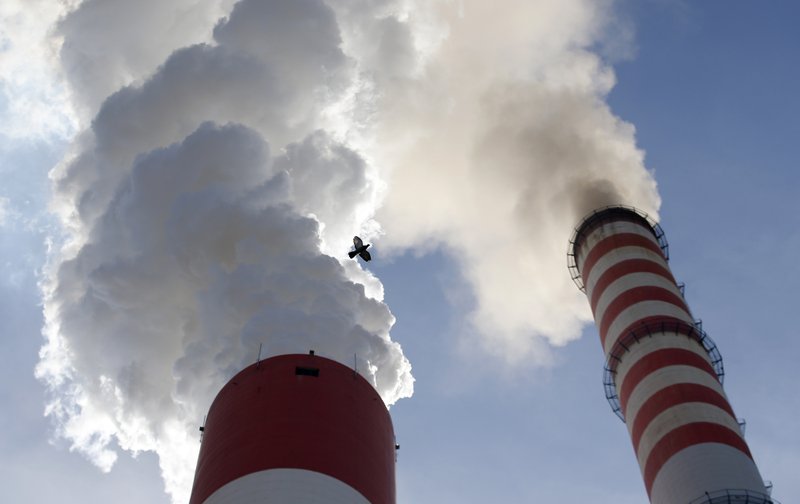KATOWICE, Poland -- Negotiators from around the world began two weeks of talks on curbing climate change Sunday, three years after sealing a landmark deal in Paris that set a goal of keeping global warming well below 3.6 degrees Fahrenheit.
Envoys from almost 200 nations gathered in Poland's southern city of Katowice, a day earlier than originally planned because of the large number of issues that need to be resolved by Dec. 14.
"We are here to enable the world to act together on climate change," said Poland's environmental envoy, Michal Kurtyka, who is presiding over the U.N. meeting, known as COP24.
With further meetings next year meant to build on what's decided in Katowice, he urged all countries to "show creativity and flexibility."
"The United Nations secretary-general is counting on us, all of us to deliver," Kurtyka said. "There is no Plan B."
Ministers and some heads of government plan to join the discussion today, when host Poland is expected to push for a declaration ensuring a "just transition" for fossil fuel industries that face cuts and closures amid efforts to reduce greenhouse gas emissions.
The meeting received a boost over the weekend when 19 major economies at the G-20 summit affirmed their commitment to the 2015 Paris climate accord. The only holdout was the United States, which announced under President Donald Trump that it is withdrawing from the climate pact.
"Despite geopolitical instability, the climate consensus is proving highly resilient," said Christiana Figueres, a former head of the U.N. climate office.
While the U.S. is withdrawing from the climate pact, the State Department said it is sending a delegation to the Katowice conference.
The meeting in Katowice is regarded as a key test of countries' willingness to back their lofty goals with concrete measures, some of which are already drawing fierce protests. At the top of the agenda is the so-called Paris rulebook, which will determine how governments record and report their greenhouse emissions and efforts to cut them.
Separately, negotiators will discuss boosting countries' national emissions targets after 2020, and financial support for poor nations that are struggling to adapt to climate change.
The World Bank Group said today that it is doubling funding for poor countries preparing for climate change to $200 billion over five years.
The shift away from fossil fuels, which scientists say has to happen by 2050, is expected to require a major overhaul of world economies.
Not far from the meeting venue, environmental activists held a small protest Sunday to call for an end to coal mining in Poland, which gets some 80 percent of its energy from coal. Katowice is in the heart of Poland's coal-mining region of Silesia, and there are several active mines in and around the city.
Marches aimed at showing support for efforts to limit climate change drew thousands of people over the weekend in Brussels, Berlin and Cologne.
A Section on 12/03/2018
